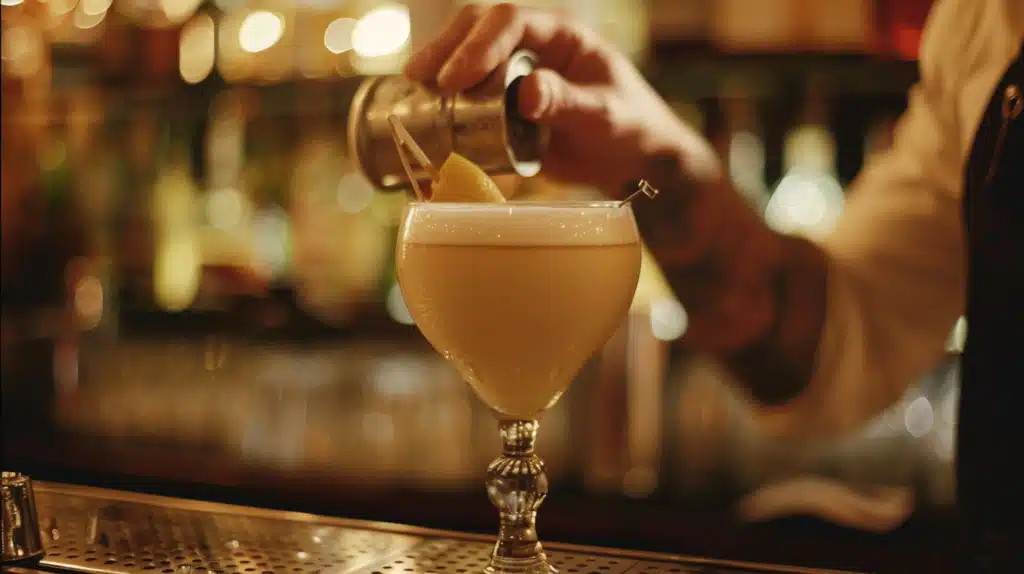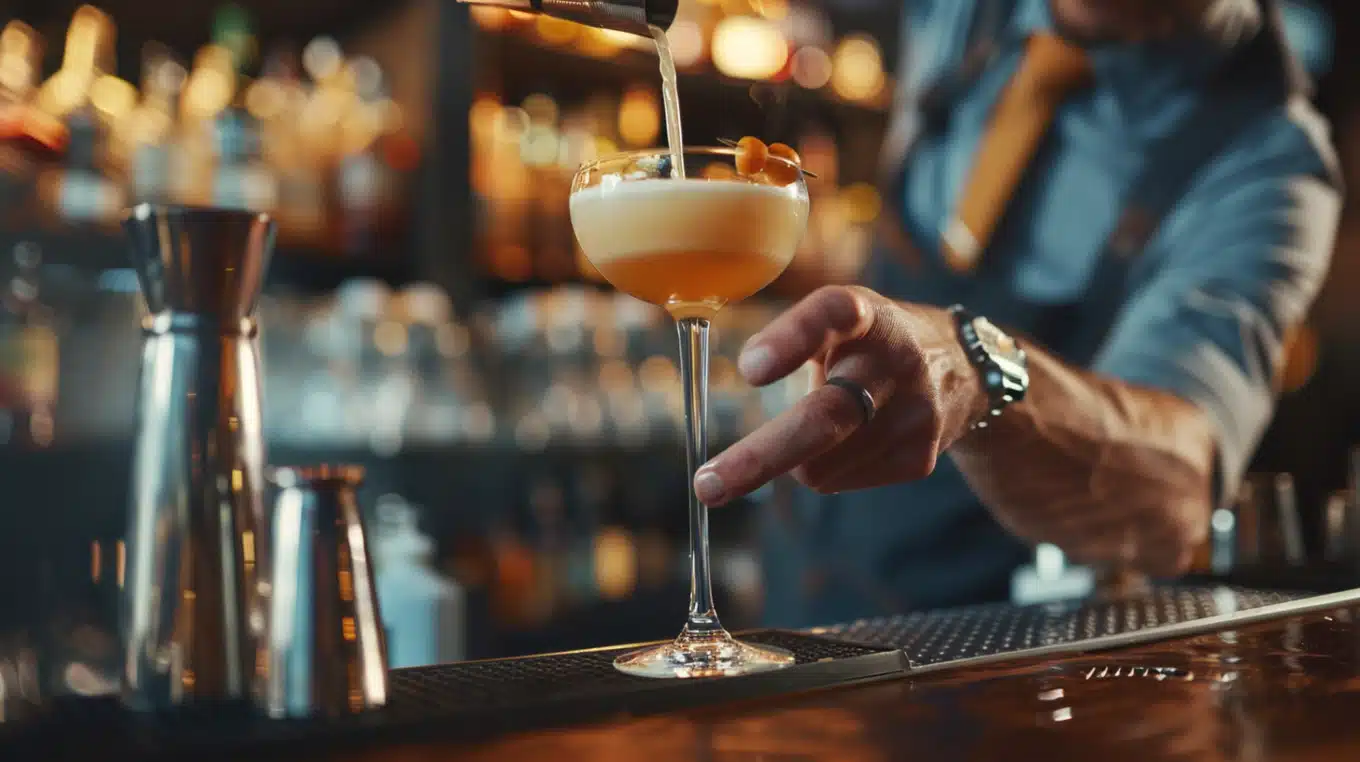Have you ever sipped your favorite cocktail and thought, “Wow, this tastes different from last time”? The key to consistently delicious drinks lies in the precision of the pour.
Whether you’re a professional bartender or a home mixology enthusiast, mastering the standard pour is crucial for creating well-balanced, flavorful cocktails that keep your guests returning for more.
In this article, we’ll dive deep into the world of standard pours for single-mixer cocktails.
You’ll learn to measure ingredients accurately, understand the importance of balance, and discover tips and tricks for perfecting your technique.
By the end, you’ll have the knowledge and confidence to craft impressive drinks every time.
Keep reading to unlock the secrets of the standard pour and elevate your mixology game to new heights!
What is a Standard Pour?
A standard pour, in the world of mixology, refers to the precise measurement of liquor used in crafting a well-balanced cocktail.
Typically, a standard pour equates to 1.5 ounces (44 ml) of any given spirit, the widely accepted industry norm for a single shot or the base liquor in most cocktail recipes.
When it comes to creating single-mixer cocktails, the accuracy of the pour is paramount.
Single Pour
A single pour, usually 1.5 ounces, is the ideal amount to achieve the perfect harmony of flavors between the spirit and the mixer.
This delicate balance ensures that neither the liquor nor the mixer overpowers the other, resulting in a delightful and refreshing drink.
Double Pour
On the other hand, a double pour is exactly what it sounds like – twice the amount of a single pour.
A double pour equals 3 ounces (88 ml) of liquor. Double pours are often used in cocktails with a higher alcohol content or a stronger flavor profile.
These drinks are perfect for those who prefer a more potent cocktail experience.
Bartenders and home mixologists must understand the difference between single and double pours.
Importance of Proper Pouring
1. Flavor Consistency
When patrons can expect the same delicious flavor every time they order their favorite cocktail, they’re more likely to return to your establishment.
Maintaining a standard pour creates a reliable and enjoyable experience that keeps customers returning.
A standard pour ensures that a cocktail’s ingredients balance remains consistent.
Over-pouring can lead to certain flavors dominating the drink, while under-pouring can result in a watered-down taste.
By adhering to a standard pour, you maintain the integrity of the cocktail’s intended flavor profile.
2. Cost Efficiency
Over-pouring can lead to significant product waste, directly impacting your bottom line.
Implementing a standard pour minimizes excess liquor usage, reducing costs and improving profit margins.
When bartenders adhere to a standard pour, tracking and managing your inventory becomes easier.
You can accurately predict how many drinks can be made from each bottle, allowing for better ordering and stock management.
This level of control helps prevent running out of key ingredients and reduces the risk of over-ordering.
3. Quality Control
Proper pouring ensures that bartenders create drinks according to established recipes.
This consistency is crucial for maintaining the quality and taste that your customers expect.
By providing clear guidelines on pour sizes, you empower your staff to create drinks that meet your brand’s standards every time.
Your reputation is built on the quality and consistency of your products.
When customers know they can count on your establishment to deliver the same great taste every visit, your brand image strengthens.
Standard pouring plays a vital role in upholding this reputation by ensuring that every drink served meets the high standards associated with your brand.
4. Customer Satisfaction
When customers order their favorite cocktail, they expect it to taste as delicious as it did on their last visit.
Maintaining a standard pour ensures that every drink meets these expectations, providing a satisfying experience for your patrons.
Satisfied customers are more likely to return to your establishment and share their positive experiences with others.
By consistently delivering well-crafted cocktails through standard pouring, you foster a loyal customer base and encourage positive reviews, contributing to your business’s growth and success.
Consequences of Inaccurate Pouring
Over-Pouring
When bartenders over-pour, it increases your liquor costs and alters the cocktail’s intended flavor balance.
This inconsistency can lead to customer dissatisfaction and a decline in repeat business.
Under-Pouring
Underpouring results in cocktails that taste weak or watered down, leaving customers feeling like they’re not getting their money’s worth.
This dissatisfaction can lead to negative reviews and a reluctance to return to your establishment.
Consistently serving under-poured drinks can erode customer loyalty, as patrons may feel shortchanged or that the quality of your drinks is subpar.
This negative perception can harm your business’s reputation, making attracting and retaining new customers difficult.
Importance of Jigger Measurement in Proper Pour

Jiggers are essential tools for ensuring accurate pours every time.
Bartenders can use a jigger to measure the exact amount of liquor needed for each cocktail, guaranteeing consistency and quality.
This precision is crucial for maintaining the delicate balance of flavors in each drink and providing a reliable customer experience.
Various types of jiggers are available, each designed to cater to different pouring needs.
| Type of Jigger | Features | Usage |
|---|---|---|
| Double-Sided Jigger | Larger side (2 oz) and smaller side (1 oz) | Most common type |
| Offers standard measurements | Ideal for accurate pours of varying quantities | |
| Graduated Jigger | Incremental markings for precision | Allows for greater measurement accuracy |
| Typically marked in ounces or milliliters. | Useful for cocktails requiring specific amounts | |
| Japanese-Style Jigger | Sleek design with a tapered shape | It provides very precise measurements |
| Standard measures range from 0.5 to 2 oz | Favored by professional bartenders for elegance | |
| Longer shape, easier to pour. | Often used for high-end cocktail preparation. |
Conclusion
Mastering the standard pour is essential for creating consistently delicious and well-balanced cocktails.
By understanding the importance of precise measurements and the consequences of inaccurate pouring, bartenders and home mixologists can elevate their craft and ensure customer satisfaction.
Whether you use jiggers, perfect your free pouring technique, or invest in automated dispensers, the key is to prioritize accuracy and consistency in every pour.
By doing so, you’ll create memorable drinking experiences, foster a loyal customer base, and maintain a stellar reputation for your establishment.
So, the next time you reach for that bottle, remember the power of the standard pour in creating cocktails that keep your patrons coming back for more.
Cheers to the art of mixology and the pursuit of pouring perfection!




